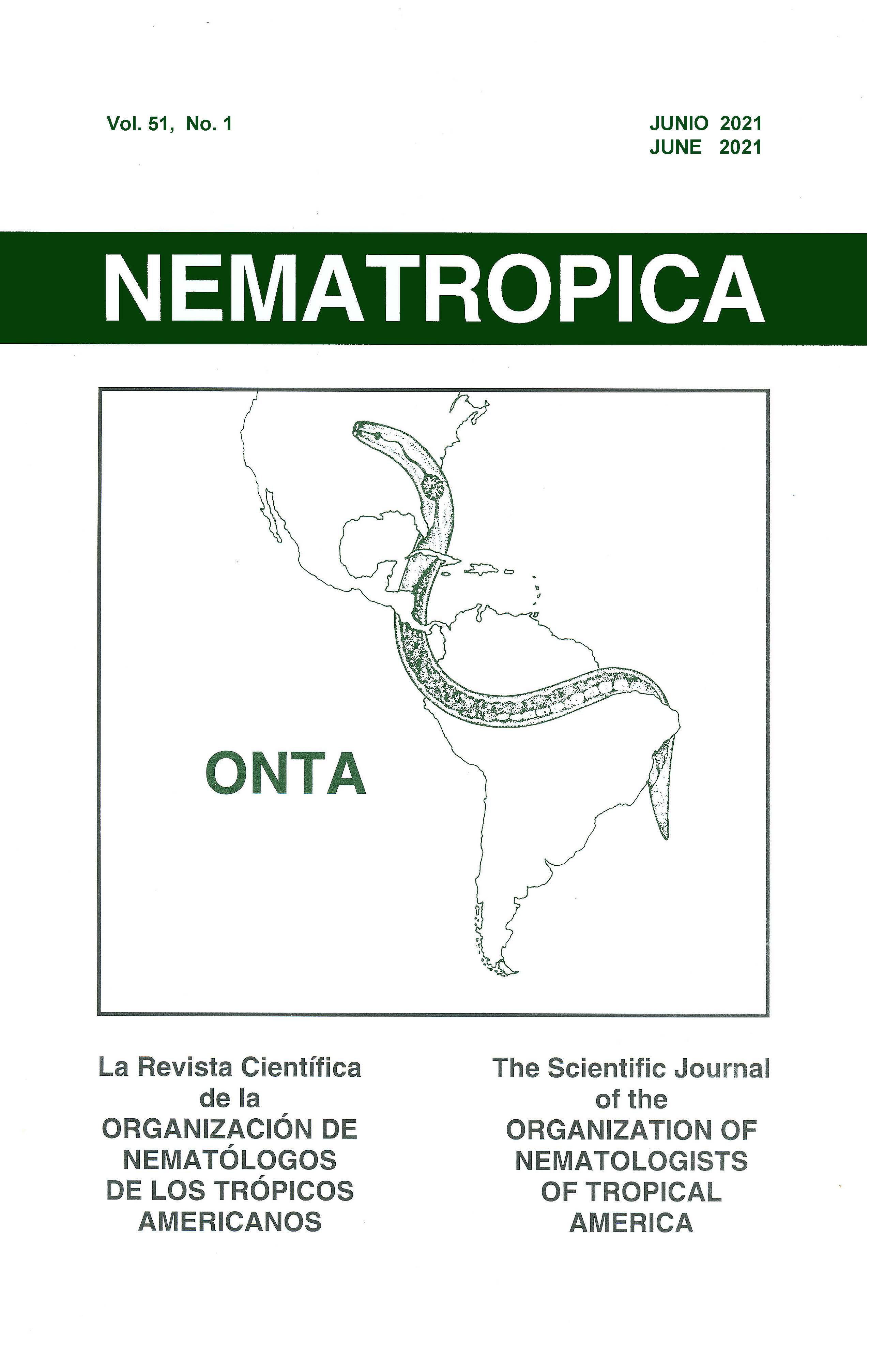MOLECULAR IDENTIFICATION AND PATHOGENICITY OF MELOIDOGYNE SPP. IN MUSA AAB (PLANTAIN SUBGROUP) ‘DOMINICO HARTÓN’ SEEDLINGS
Abstract
Meloidogyne (root-knot nematodes) are distributed worldwide and cause yield loss of economically important crops. The objectives of this research were to: (i) identify, with molecular techniques, the Meloidogyne species that parasitize Musa AAB ‘Dominico Hartón’ and (ii) evaluate the damage of Meloidogyne spp. to ‘Dominico Hartón’ seedlings. Second-stage juveniles (J2) of Meloidogyne spp. were collected from roots of ‘Dominico Hartón’ plants, at the Montelindo Research Farm of the Universidad de Caldas, Colombia, and molecular identification using PCR-RFLP and PCR-specific primers was performed at the Nematology and Molecular Techniques Laboratories, at Universidad de Costa Rica. A mixture of Meloidogyne incognita and M. arenaria was identified (1:7 ratio). Additionally, ‘Dominico Hartón’ seedlings were inoculated with mixtures of M. incognita + M. arenaria (0, 750, 1,500, 2,250, and 3,000 eggs + J2/seedling). Compared to the noninoculated control, from lowest to highest population density, it was observed that nematodes significantly (P < 0.05) reduced shoot dry weight from 25.4% to 52.6%, and root dry weight from 39.5% to 55.3%. Different nematode densities did not affect seedling height and number of leaves. In conclusion, the mixture of M. incognita + M. arenaria significantly affected growth of ‘Dominico Hartón’ seedlings.

